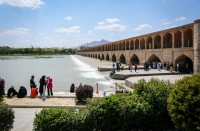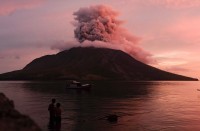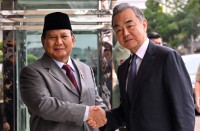SAMUTPRAKAN, Thailand (Reuters) — Global charity Migrant Offshore Aid Station (MOAS) on Friday (February 26) launched a mission in the Andaman Sea to track and rescue migrant boats in distress in the Southeast Asia region.
The migrant boats contain a mix of people from Bangladesh seeking to escape poverty at home as well as Rohingyas, Indonesian and Malay authorities have said.
Most of Myanmar’s 1.1 million Rohingya Muslims are stateless and live in apartheid-like conditions in Rakhine state. Almost 140,000 were displaced in deadly clashes with majority Buddhists in Rakhine in 2012. They are denied citizenship and have long complained of state-sanctioned discrimination.
Every year, tens of thousands of Rohinyas flee Myanmar on overcrowded and unsafe boats, many of them organised by human traffickers.
The M.Y. Phoenix which has been docked at a Thai port since November last year is set to start its journey from Bangkok on Saturday (February 27).
It will head down south towards Langkawi, Malaysia and then make a three-week long journey in the international waters of the Andaman Sea in March, said MOAS founder Christopher Catrambone.
MOAS, which also organised rescue operations in Europe’s migrants crisis, said it use drones to look out for boats in distress.
The vessel’s captain, Thomas Johansen, said the government of the nearest country will be contacted to take in those rescued.
“When we establish communication with them (government officials), the ball is with them, they have to reply, they have to do something. This is why I say again, transparency is our priority number One,” he said.
Founder Christopher Catrambone outlined the mission of his charity.
“I assure you, if we have the opportunity to mitigate lost of lives – one life folks, that’s all we’re saying, one life – if we can save one life, this entire mission is worth it,” he said.
A crackdown on people smugglers in Thailand earlier this month last year has blocked trafficking routes and forced the abandonment of ships, but thousands of migrants have washed ashore in Malaysia and Indonesia. Others are stranded on trafficking boats off the shores of several Southeast Asian countries.
“The trafficking has, if not diminished, if not eliminated, based on a crackdown by Thai authorities, however, it’s still being reported that people are leaving on boats on their own accord, without human traffickers because of human rights violations against them. So again, this is the push factor that we’re hearing about,” Catrambone added.
Myanmar, a predominantly Buddhist country, does not recognise the Rohingyas as citizens and says any trafficking victims must pass nationality verification before being allowed back to the country.







